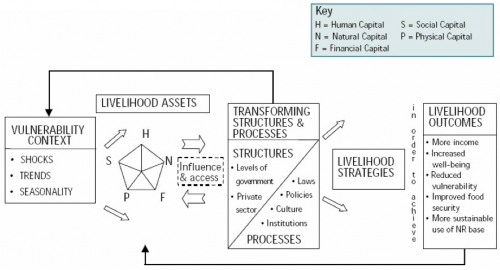Academia on the experience of poverty

It takes a lot of words for academia to say “We can’t describe the experience of poverty”. This is from “ Using a sustainable livelihoods approach to assessing the impact of ICTs in development” by Sarah Parkinson and Ricardo Ramírez:
…the way development professionals conceptualise development and poverty is very different from how poor people themselves view these. Poor people perceive poverty in a much more complex manner than do development professionals and they employ a range of strategies, not only to maximize income, but also to minimise risk and to protect or increase other things that they value. Poor people’s priorities are often different from those imputed to them by development experts, and their strategies are often more complex, both in terms of activity and motivation Thus it is argued, the sustainable livelihoods framework [above] provides a conceptualisation that is more appropriate to the perspectives and realities of poor people. (Chambers 1995).
And more:
The focus of “livelihood” in sustainable livelihoods (SL) frameworks is an attempt to move away from narrow definitions of poverty, and as such reframes the broad aim of development as an effort to improve people’s livelihood options. “Livelihood” refers broadly to a means of making a living, and includes the assets, access to institutions and processes, and strategies that a person utilizes to achieve livelihood outcomes (Ashley and Carney, 1999). The term “sustainable” refers both to the characteristic of a livelihood to endure the various shocks and uncertainties likely to be encountered in the environment, and to avoid contributing to long-term depletion of natural resources (Chambers 1987).
For the record, I’m much more comfortable with this conceptualization than the standard “poverty is the absence of money”…and this involves a flow chart. Via Peter Miller’s dissertation.